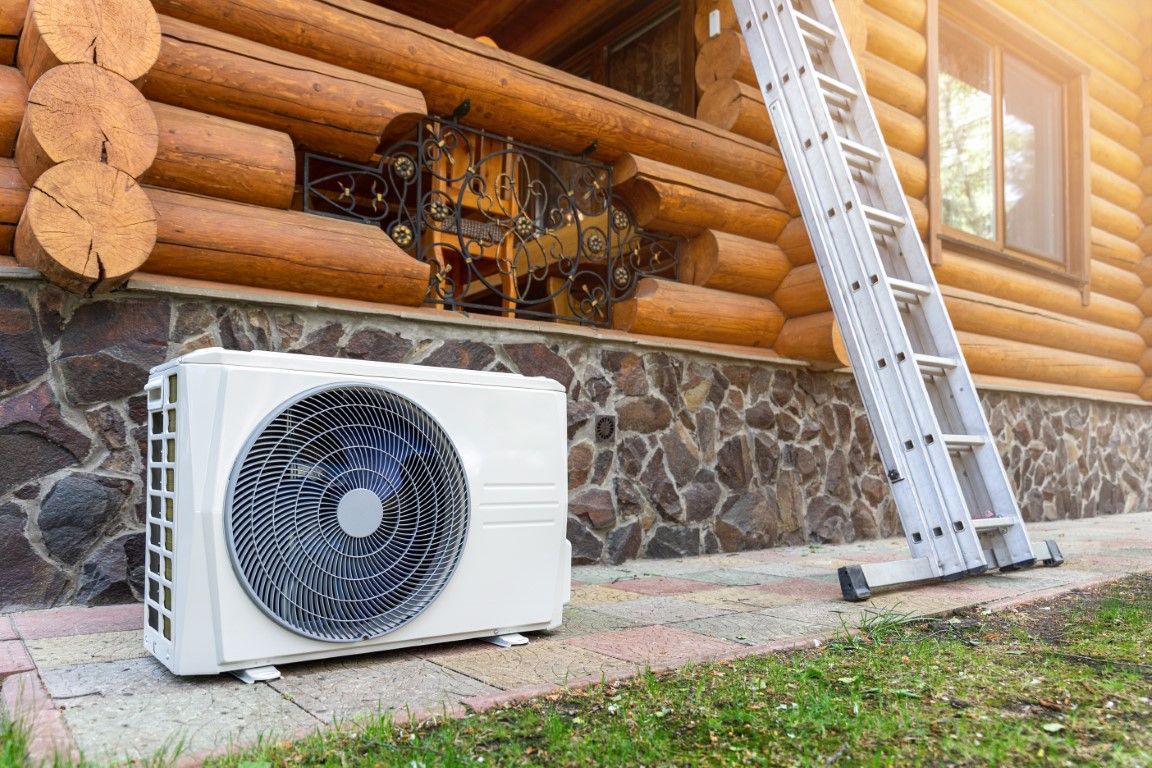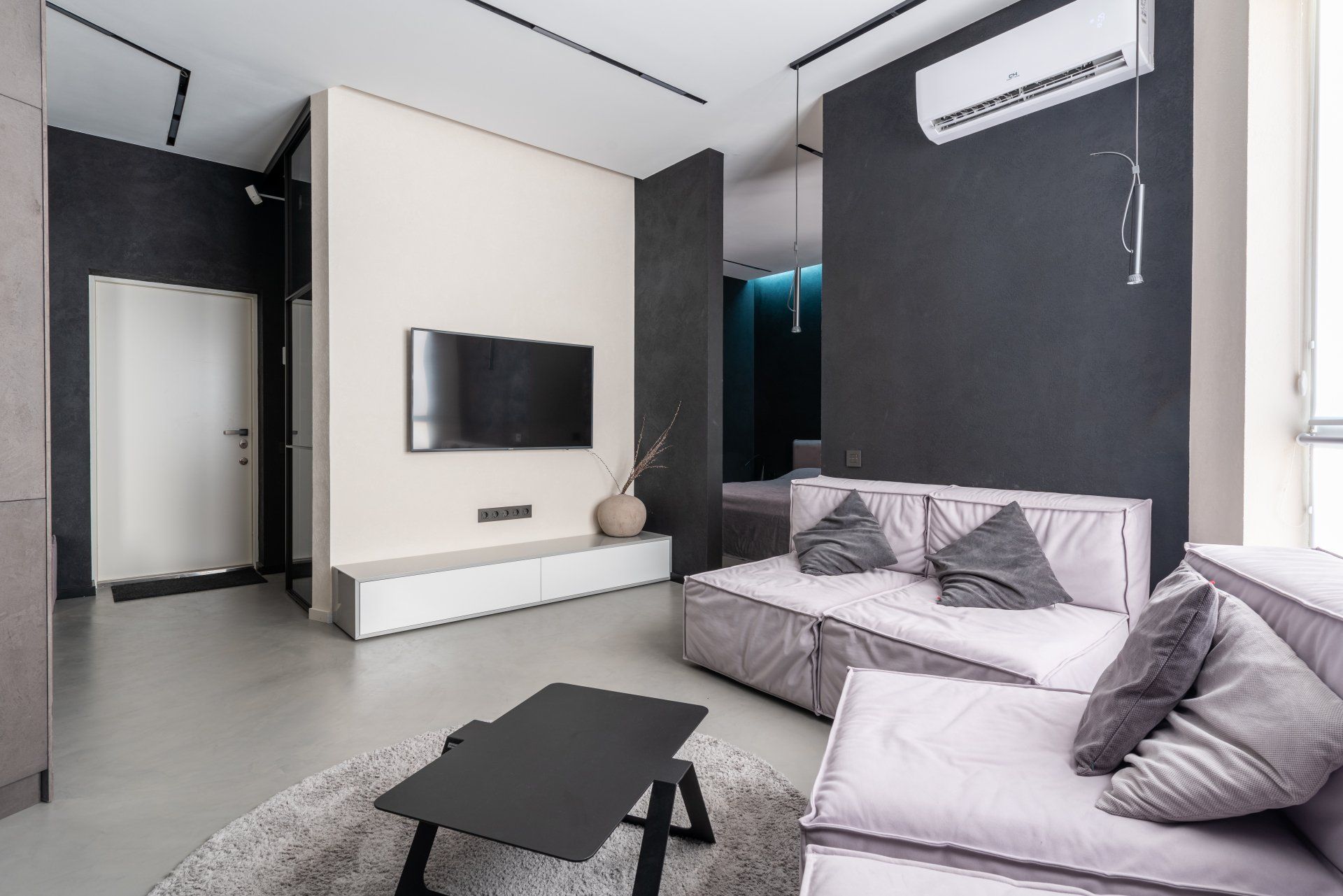Choosing Between a Heat Pump and an AC: Which Option is Best for Your Home?

When you're comparing heat pumps to air conditioners for your home, it's important to know the differences and similarities between them. They're actually quite similar in some ways: some heat pumps can cool your home, and some air conditioners can also provide heat.
Heat pumps, whether air source or ground source, are becoming more popular as a greener way to heat homes, but they're not new technology. They've been around since the 1940s when Robert C. Webber noticed that cooling systems were rejecting heat. Since then, heat pumps have been used to heat homes, and the technology has improved a lot. We're all familiar with air conditioning in places like our workplaces, cars, hotels, and shops. While we usually think of air conditioning as cooling, many air conditioners can also provide heat nowadays.
Is it Possible for Air Conditioners to Provide Heating for a Home?
Air conditioners can heat a home by passing warm air over very cold pipes or plates containing refrigerant. This refrigerant absorbs heat, cooling the air and sending the waste heat outside. Air cycles through the unit multiple times, getting cooler with each pass. Humidity is also removed, and a condensation pump handles the water.
Some air conditioners use a reverse cycle to extract low-grade heat from inside air, enhancing it before releasing it back indoors. The cooling effect is sent outside via the fan unit, with only the heat traveling through the air.
Air conditioners and heat pumps are both HVAC systems, and air conditioners are essentially air-to-air heat pumps. While they operate similarly to air source heat pumps, they work in reverse when providing heat.
Can Heat Pumps Cool a Home?
Before we get into that, let's talk about the different types of heat pumps. Some heat pumps take heat from water systems like radiators or underfloor heating. These are called air to water heat pumps. Others get heat from the ground, known as ground to water heat pumps. And then there are air source heat pumps, which take heat from the air outside.
The big difference between these is how they transfer heat to your home. Heat pumps work by turning cold liquid into a hot gas. This gas passes through a compressor, making it even hotter. Then, it gives off heat to warm up your home. This process is similar to how your fridge or air conditioner works. The only difference is that with heat pumps, we use the cooling part as the useful element, and the heat is released outside. So, if you're thinking about getting a heat pump, decide if you want it for cooling or heating—it's that simple.

Let's dive deeper into the cost aspect of different heating and cooling systems.
1. Heat Pump Costs:
- Air Source Heat Pumps: These can range up to £14,000 for installation, depending on factors like size and brand. Even with grants available to reduce costs, they still represent a significant initial investment. However, they offer potential long-term savings on energy bills.
2. Air Conditioning Costs:
- Installation Costs: Installing an air conditioning system generally costs around £1,200 per room. One advantage they have over traditional water-based heating systems is that their pipes are smaller and less disruptive during installation.
- Hot Water Consideration: One downside of using air conditioning for heating is figuring out how to provide hot water. Unlike traditional heating systems that often incorporate hot water delivery, air conditioning primarily focuses on cooling or heating indoor air.
Which Systems Do Both Cooling and Heating?
Variable Refrigerant Flow (VRF) systems, also known as Variable Refrigerant Volume (VRV) or Time Division Multi (TDM) systems, are indeed a fascinating integration of air-to-air and air-to-water heat transfer technologies. The ability to provide both heating and cooling within a single system offers significant convenience and efficiency benefits, especially in commercial settings like hotels.
One of the key advantages of these systems is their flexibility. They can adapt to varying heating and cooling demands in different zones or rooms, thanks to their variable refrigerant flow control. This adaptability not only enhances comfort but also contributes to energy savings by avoiding unnecessary heating or cooling in unoccupied areas.
While these systems are widely used in commercial buildings, their availability in smaller versions for residential use is also becoming more common. This trend reflects a growing interest in efficient and versatile HVAC solutions among homeowners.
However, it's worth noting that the classification of these systems under UK standards and their eligibility for incentives can vary. Regulations and incentives often evolve to encourage the adoption of energy-efficient technologies, so it's essential for consumers to stay updated on the latest standards and incentives applicable to VRF/VRV systems in their region.
Which Heater is Better?
Both an air source heat pump and an air conditioner heat things similarly, but the big difference is that a heat pump warms up water.
Water can hold a lot more energy than air can in the same space, so it's easier to spread the warmth around. Plus, you won't hear the swooshing noise that often comes with air conditioners.
A heat pump can also heat up the water in your house and the water you use for bathing and washing.
Some people use air conditioners to warm up their homes, but think about whether you're okay with the air moving around and how the heat spreads. Special systems can make the fan noise quieter, but air moving by itself can still make noise.
What's the Most Effective Way to Cool?
Air conditioning is the most effective way to cool a space. If you want cooling from an air source heat pump, make sure it can work in reverse. Not all heat pumps can do this, so check with the manufacturer. You might also need special fan convector radiators for cooling, as regular radiators cool slowly through convection.
Be careful not to drop the water temperature in your radiators or underfloor heating below 17°C, or condensation may form and cause damage. Heat pumps usually don't cool water below 15°C, which may not be very effective without air movement. Air conditioning, on the other hand, cools well with a lot of air circulation. Overall, heat pumps in regular radiators only slightly cool the air.
